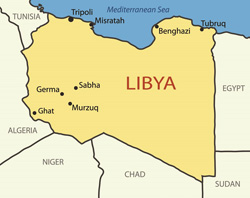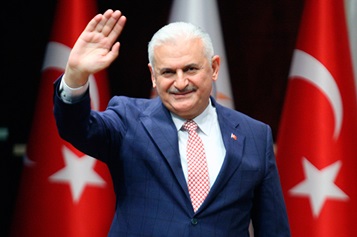Adjusting the EU's Geopolitical Posture in the Eastern Neighborhood[Over]  by George Vlad Niculescu, Head of Research, the European Geopolitical Forum
by George Vlad Niculescu, Head of Research, the European Geopolitical Forum
How could the EU best deal with a revisionist Russia who challenged the post-Cold War European security order, most notably in Ukraine and in Georgia? We should probably start from considering EU’s current strategic options in its Eastern Neighbourhood. The key question here is what should be the EU’s objective in this contested region? Is it to find a compromise solution with Moscow on how to fix the broken security order? Or is it to defend its shared values in the Eastern Neighbourhood, and to eventually annihilate the Russian power and influence? READ MORE
- Tuesday, 7 March 2017, 10:10
New Russian Order in the Middle East?[Over]  By Dr.Cyril Widdershoven, EGF Affiliated Expert, Military geopolitics By Dr.Cyril Widdershoven, EGF Affiliated Expert, Military geopolitics
Military environment in the Mediterranean is changing according to the chess plans of Russia’s leader Vladimir Putin. After bridging the immense opposition Russia was encountering during and after the demise of the USSR, a new Russian influence sphere has been built up of unforeseen order. It how the situation is perceived by Western leaders and military experts.
Re-emergence of Russian military assets and bilateral and multilateral relations with Arab countries is now being substantiated by the set-up of new military alliances in and around the Mediterranean. READ MORE
Any Optimism in the Chinese ‘Rooster Year'?[Over]  Mehmet Ogutcu
Mehmet Ogutcu
EGF Affiliated Expert
LONDON - As the world is preparing to leave 2016 behind as a year fraught with political surprises, financial crises and market volatility, governments and businesses including those in Turkey have started to set their eyes on what the next 12 months have in store for them politically and economically.
Clearly, global risks are more elevated and more interconnected than we have ever seen before and demand a proactive and integrated response to address potential impacts. To refresh your memory, since the end of the Bretton Woods order in the 1970s, there have been serious financial crises every seven years over the past 40 years: 1987, 1997, 2007. If you ask me whether the global crisis which has been brewing in the last few years could erupt in 2017, my answer would be yes. READ MORE
- Tuesday, 7 March 2017, 10:09
Turkey will reconcile with Syria[Over]

Prime Minister Binali Yildirim said that Turkey is heading to restore relations with Damascus. "We will expand our circle of friends. We have already begun to do so. We normalized our relations with Israel and Russia, and now, I am sure, we will do the same with Syria. We need it to be done", - said Yildirim, speaking on Turkish television. READ MORE
- Tuesday, 7 March 2017, 10:09
Launch of a new EGF monthly: the Geopolitical Trends[Over]  George Vlad Niculescu,
George Vlad Niculescu,
Head of Research, the European Geopolitical Forum
EGF is excited to announce the launch of a new monthly information product, the Geopolitical Trends. Written by our long-time Head of Research, George Vlad Niculescu, it aims to fill a gap in complex, multi-optional coverage of key geopolitical trends in Eurasia. Each issue will delve deeply into current events, such as recent Russian/American actions in Syria and implications for the ongoing conflict in Ukraine.
For year 2016:
Please click here for Issue 1
Please click here for Issue 2
For year 2015:
Please click here for Issue 1
Please click here for Issue 2
- Tuesday, 7 March 2017, 10:08
What Can We Expect from 2017 in the Settlement of the Nagorno-Karabakh Conflict? - UPDATED[Over]  Interview with Azenglishnews.com by George Vlad Niculescu,
Head of Research, the European Geopolitical Forum
Interview with Azenglishnews.com by George Vlad Niculescu,
Head of Research, the European Geopolitical Forum
I would hope to see the year 2017 becoming a watershed in the Nagorno-Karabakh (NK) conflict resolution. To that end, one essential requirement is for the conflicting parties to identify a political compromise that would underpin the conclusion of a peace agreement on Nagorno-Karabakh. It is deemed widely that the inability to produce a resolution on the Nagorno-Karabakh conflict so far was, to a large extent, linked to the dilemma regarding the prevailing legal and political principles that would be applicable. READ MORE
- Wednesday, 22 February 2017, 04:22
Turkey-Armenia Relations after Turkey’s Elections[Over]  Armen Grigoryan, Armen Grigoryan,
EGF Guest Contributor
The outcome of Turkey’s recent parliamentary elections may partly reduce tensions in relations with Armenia, stopping the mounting hostile rhetoric of recent months. A normalization of bilateral relations should not be expected at this stage, but the trend of increasing cooperation in the humanitarian area, and in culture, tourism, and the media in recent years will likely continue. At the same time, some policies may need READ MORE
This article was first published by the "Central Asia-Caucasus Analyst, Central Asia-Caucasus Institute & Silk Road Studies Program Joint Center" which holds the copyright for it.
- Wednesday, 8 February 2017, 12:51
EGF convenes high level expert seminar on Nagorno-Karabakh conflict resolution in Tbilisi[Over]
On 22 July 2015, EGF convened a further dialogue event between Armenian and Azerbaijani experts in its ongoing sequence on "What the South Caucasus Region Could Be: Exploring the Role of Economic Initiatives as Peace Building Tools in the Nagorno-Karabakh Context" in Tbilisi (Georgia). Similar to previous events of this nature held in 2014, the Tbilisi meeting unfolded in a constructive atmosphere and aimed to assess the role of economic initiatives in building peace in the Nagorno-Karabakh context. READ MORE
|
|